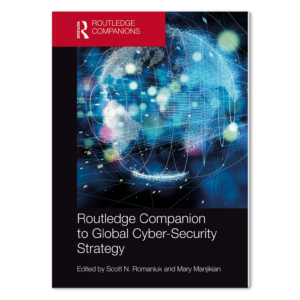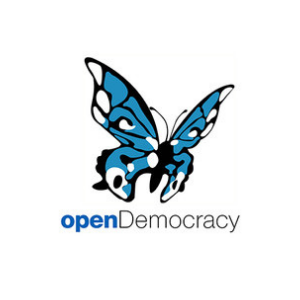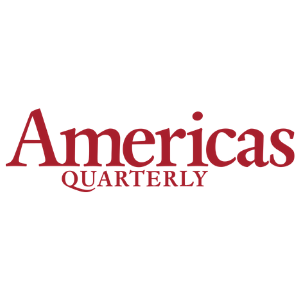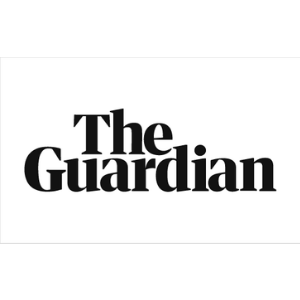
Why The Latest Cyberattack Was Different
All during 2020, as the coronavirus pandemic swept around the world, another novel virus with devastating long-term effects spread unnoticed worldwide

All during 2020, as the coronavirus pandemic swept around the world, another novel virus with devastating long-term effects spread unnoticed worldwide

While the coronavirus pandemic is ravaging around the globe, we will continue to experience unprecedented urbanization in the coming decades.

Ilona Szabó is competing for the Think Tanker of the Year prize

Louise Marie Hurel contributed with a chapter on cyber-security governance in Brazil.

At 8:45 pm, five gunmen stormed the Holey Artisan Bakery, an upscale establishment in Dhaka, the capital of Bangladesh.

Many Brazilians were worried by the torrent of disinformation on social networks during this year’s bitterly contested U.S. presidential elections

Cities are the crucible of our civilisations

Central Asia was long a digital backwater

Brazilians are preparing nervously for their own municipal elections on November 15

This is the startling observation made by authors Ian Goldin and Robert Muggah in the introduction to their fascinating new book, Terra Incognita

Maps are not just informative, they are empowering. They can help provide a new perspective to age-old problems

Around the world, responses to the first and second waves of the COVID-19 pandemic are understandably focused on reducing infections and fatalities.

At the sharp end of the wedge, cross-boundary bodies like the Igarapé Institute, with the cooperation of Interpol and NGOs, track environmental crimes in the Amazon basin, with a view to bringing legal cases against those responsible.

The COVID-19 pandemic is a profoundly urban crisis. The vast majority of the millions of reported cases worldwide are concentrated in overcrowded neighbourhoods and informal settlements.

This article is part of a series in which leading experts reflect on emerging trends for cities seeking to address hate, polarisation and extremism.

One of the first countries to register a Covid-19 outbreak, South Korea, flattened the curve in stunning fashion. It registered over 22,000 cases, yet fewer than 400 deaths at the time of writing.

JBS, the world’s largest meatpacker, is turning to blockchain to ensure the traceability of the tens of thousands of cattle it processes every day in Brazil, following intense pressure from both investors and activists over its environmental record.

At the United Nations, the world’s longest Zoom meeting is underway as presidents and prime ministers meet virtually amidst a pandemic that has killed almost a million people, an economic depression with no modern parallel, and a tide of polarization and division that threatens the social fabric in many countries.

The world’s longest Zoom call is underway at the United Nations General Assembly today.

The digital economy has finally arrived.

Brazilian President Jair Bolsonaro defended his administration’s record protecting the Amazon rainforest, telling the United Nations’ virtual meeting of global leaders on Tuesday that his country has been wrongly portrayed as an environmental villain. Bolsonaro’s critics were quick to pick apart his claims.

Even before the tumultuous arrival of COVID-19, many parts of the world were suffering from dangerous polarization and division.

Around the world, COVID-19 is accelerating polarization and division.

We can give people a better sense of what’s happening around them at a time of extreme confusion and a motivation to act. Because ultimately, the future is what we make it, says ‘Terra Incognita’ co-author Dr Robert Muggah.

Robert Muggah (apparently an old Scottish name, though he is Canadian) has set up two think-tanks in Brazil, where he is based: the SecDev Group focuses on the digital economy and cybersecurity.

Recent political developments in the United States are threatening internet freedom and cybersecurity across Latin America.

Related concern about state brutality also propels two expert advocates up the list: Ilona Szabó de Carvalho (5th), who set up the internationally-influential Igarapé Institute, which champions citizen-led security, and the American prison abolitionist

Robert Muggah, co-founder of Brazil-based security and development think tank Igarape Institute, said that while Monday’s operation will “sting,” it is “unlikely to make a major dent on the PCC” given the organization’s vast size, hierarchy and deep roots in the country’s prison system.

The Amazon Basin is approaching a dangerous tipping point.

“This includes shining a light not just on crime groups and shady business but also the corrupt government officials – including police, notary clerks, customs officials, and politicians – who facilitate the business,” Szabó said in an interview with the Thomson Reuters Foundation.

O Instituto Igarapé utiliza cookies e outras tecnologias semelhantes para melhorar a sua experiência, de acordo com a nossa Política de Privacidade e nossos Termos de Uso e, ao continuar navegando, você concorda com essas condições.

